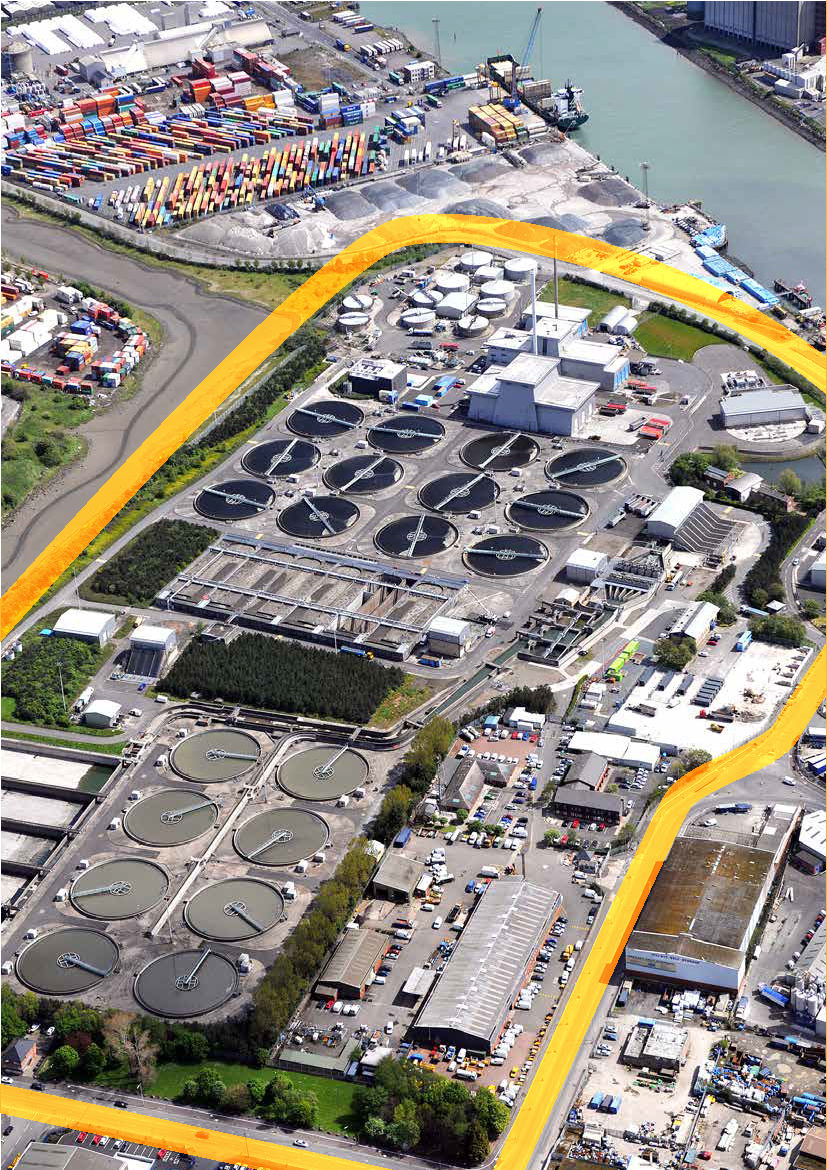Going down the drain – lack of investment is sinking NI Water
24 August 2020 18:26

Chronic underfunding of NI Water has been well documented, however the company is warning that unless additional capital investment is provided, Northern Ireland will face further restrictions on economic growth and more damage to the natural environment. Northern Ireland’s failing wastewater infrastructure is unable to take connections from new houses and businesses in major parts of our cities and over 100 towns, and this is leading to inadequate environmental protection through increased sewer flooding and pollution.
Sara Venning, Chief Executive, NI Water, outlined the critical state of the utility in its Annual Integrated Report for 2019/20.
“Northern Ireland is the only region in the UK where the water utility is not funded to the levels required by its independent regulator. The impacts of underfunding are not something we can allocate to future discussions, they are happening now and are undermining our resilience to the challenges brought by the climate emergency and a growing population. The scale of the problem currently facing NI Water requires major, inescapable investment.
“While NI Water has continued to successfully deliver private sector levels of performance and efficiency, this cannot continue given the sustained and significant underfunding. Over £2bn is required in our next business plan period PC21 (2021-27), including £0.5bn for the Living with Water Programme to address strategic drainage in Belfast.
“Failure to find a solution will lead to a funding crisis with widespread detrimental impacts for our local economy and natural environment; a case we know that the Infrastructure Minister continues to make to the Executive. However, the solution cannot come from one Government Department; this is a health, economic and environmental crisis, which is impacting on all of society. The Northern Ireland Executive’s committed policy is to continue to subsidise domestic water and sewerage services through public expenditure until 2022. However, continued shortfalls in public expenditure funding have resulted in the crisis we have today, with 25 of the 27 economic hubs, identified by local councils for growth in the future, being restricted in building houses, schools, office buildings and factories. The underinvestment is also leading to inadequate environmental protection. It’s time to provide the investment that is needed."
The Annual Report also outlined how NI Water can support a greener economy for Northern Ireland and the potential to implement alternative solutions that are not always the most obvious ones.
“No business can stand still and ours is no exception,” explained Ms. Venning. “We have the opportunity to play a key role in supporting the wider societal shift to a decarbonised economy and to do that we need investment.”
Ms. Venning concluded,
“The Covid-19 crisis has shone a light directly on how vital clean water and sanitation are to society. We simply cannot maintain a modern day economy and a healthy and thriving population without a properly funded water and wastewater service. We need the drains and the cranes for economic recovery and a flourishing natural environment.”
ENDS
For further information please contact press.office@niwater.com
Notes to editors
- NI Water’s Annual Integrated Report for 2019/20 is available at https://www.niwater.com/annual-report/ and its PC21 business plan (2021-27) fast read is available at https://www.niwater.com/price-control/
- To provide a sense of scale, every day NI Water provides 585 million litres of great tasting, safe drinking water and recycles 355 million litres of wastewater back to the natural environment. It costs around £460m each year to deliver water services in Northern Ireland. Thousands of assets at a value of around £3bn, are operated and maintained to provide these services. This includes over 40,000km of water mains and sewers - one and a half times longer than Northern Ireland’s entire road network and long enough to circle planet earth.
- NI Water does not set its own funding levels. This is done by the independent Utility Regulator. Similar to Ofwat in England and Wales, the Utility Regulator has a statutory duty to protect the interests of consumers and ensure that NI Water is able to finance the proper carrying out of its functions. The Department for Infrastructure is the shareholder and owner of NI Water.
- Northern Ireland is unique within the UK as the only region, where the regulated water utility is unable to fully implement the economic regulator’s final determination due to public expenditure constraints. NI Water’s PC15 business plan (2015-21) started with a constrained funding of £990m against a £1.7bn requirement. This has been further constrained by public expenditure cuts over PC15.
- In January 2020 NI Water submitted its PC21 business plan (2021-27) to the Utility Regulator. This six year business plan sets out an investment programme in excess of £2bn required to ensure that Northern Ireland’s water and wastewater infrastructure is resilient to the strategic challenges, which include the climate emergency and a growing population.
- We welcome the announcement of the new Ministerial Advisory Panel on Infrastructure and its consideration of a Northern Ireland Infrastructure Commission, that will also look at ensuring sustainable water and wastewater infrastructure.
- The impact of the COVID-19 lockdown in transferring water usage from business to homes, aligned with increased COVID-19 protection measures, means Government is having to meet a higher proportion of NI Water’s running costs. This additional funding requirement is forecast to continue.